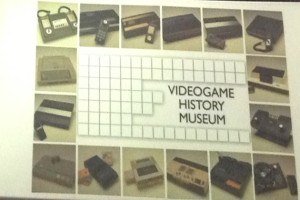The Stories We’ll Tell of Home
by NorseGamer, HSM Publisher
As you know, Terra_Cide (my lovely and wonderful soul mate) has a child. And I’ve just spent a fortnight in New England with them both. Watching Terra’s son playing video games — games featuring characters and stories and worlds I have no emotional connection to, but which he is utterly enthralled by — got me to thinking:
Years from now, what stories will we tell of Home?
Before we begin: yes, I know tensions about Home’s future are high. But let’s face it: whether it’s a year from now or a decade from now, Home — like everything else — must at some point come to an end. When I was a kid I absolutely loved my Apple ][e, and by modern computing standards it had an amazing run as a dominant piece of consumer hardware, but even with emulators and the like available today…it’s clear that time moved on.
No, the purpose of this article is to talk about how we’ll look back on Home long after it’s gone — and, more to the point, what stories we’ll share about it. Home may not be command the spotlight within the Sony pantheon as it once did, but it does hold a certain unique magic which has enticed and sustained a not-insignificant number of people for more than half a decade. Just as it will be more fondly remembered in gaming media at large after it’s conveniently and safely dead, so too will we perhaps glorify Home in our memories and “you had to be there” storytelling to our friends.
This isn’t limited just to Home, by the way. Twice now I’ve been to E3 — first as a journalist, then as a developer — and in both instances the part of E3 that really resonated for me, emotionally, was the Classic Games Museum. How could these games possibly be museum pieces, I wondered. I was just playing them!
But time marches on. And in our industry in particular, yesterday’s megahit is today’s dustbin. Scarcely a dozen years separate Cubehouse and I, but when we were at the E3 Classic Games Museum, he didn’t understand my emotional response to playing StarFox again. It just wasn’t a part of his world. And yet, I know that when he’s in his thirties and replaying some game from his youth that he loved, his reaction will be exactly the same as mine was — and someone else will look at him and not understand what he’s on about, either.
So now then. Home.
It seems we never truly appreciate what we have until it’s gone. Central Plaza, for instance, is a perfect example of this. The plaza was nearly universally reviled when it was around; it was a place to be avoided, generally perceived as a cesspool for malcontent users and poor behavior — hardly the sort of environment new users should be exposed to, right?
So we were given exactly what we asked for: Central Plaza was yanked, replaced with the Hub and its districts. Instead of one central place designed specifically with the idea of socialization and congregation in mind, we’re given an environment that urges you to move along to wherever you need to be as quickly as possible. If the old plaza’s message was stay a while, then the Hub’s message is, simply, go.
And so what do we do now? We bemoan the loss of the very same space we formerly decried.
Will this be one of the stories we tell of Home, though? I doubt it. Just as I doubt we will tell stories of the years — years — of screaming over the loss of the EA poker rooms. Instead, our storytelling, tinged with fond remembrance, will likely center on all the high points Home helped us create over the years. The various failings and challenges simply add some spice or poignancy to the tale.
For instance: I’m currently writing this at an altitude of 40,000 feet, on my way from Boston to Los Angeles. Thanks to the 2014 “polar vortex” arctic hurricane that froze more than half of the United States to the ground, it’s taken four days to get the hell off the eastern seaboard. I’m currently very tired. My back hurts. It took an excruciating two-hour bus ride from Portland to Boston just to find a flight that wasn’t canceled, and I’m currently seated so far back in the cramped tail section that I’ve already had a pulmonary embolism and was slightly killed.
But that’s not the story.
Nor is it the story when I say that my first two attempts to leave New England were thwarted by a blizzard which essentially submerged one entire airport in powder and caused another one to be shut down due to a runway crash, and the plane I was scheduled to depart on had no crew. No. That’s the window dressing to the story, designed to give it some weight. The true story is the story of a relationship more than three years old between two people who met and fell in love because of PlayStation Home — people who were so dedicated to the platform that they themselves were fortunate enough to become Home developers and reinvent their respective professional careers in the gaming industry, while helping others to find their creative voices along the way.
That’s the actual story, years from now, that I will tell about Home: the quirky virtual world that was too far ahead of its time, which served as a haven for a lot of damaged souls, which gave people an amazing ability to live inside a video game, which was a unique sociological experiment, which inspired so many people — for years — to devote massive amounts of time and energy to studying and exploring and sustaining it.
Questions percolate to the surface. Five years from now, how many of my Home friends will I still be in even semi-regular contact with? What stories will they tell? Even the most permutation-riddled RPG, for instance, has a finite (and, more importantly, linear) number of experiences to offer. Home, on the other hand, can be two completely different experiences for two different people. If you and I both play The Last of Us, for instance, we’re more or less getting the same experience. Whereas in Home, it’s not only feasible but common for users to have completely different definitions of what the Home experience is based on what they choose to do.
That’s a lot of stories to tell. And that’s what makes Home so unique.
Look back at the thousands — yes, thousands — of articles, machinima, etc. published in HomeStation over the last few years. The stories of people who played games together. Danced together. Decorated together. On and on. Since Home is a social metaverse with no clearly defined purpose, it’s effectively a mirror that reflects us back upon ourselves — and what we get out of it is exactly what we put into it. Years from now, after Home has gone to dust and this community has all gone its separate ways, we will tell such stories.
And those who never experienced Home will, perhaps, wonder what they missed.
It may seem odd for HSM to still be so Home-centric, given the age of the application and the fact that a new console generation is underway. Just within the Sony universe alone, there’s a plethora of exciting things to talk about beyond the walled garden of Home. PlayStation Now, for instance, is a gigantic step forward. And as we progress into 2014, we’re going to devote more coverage to these things. But we really mustn’t forget the magic of Home, or what it’s given all of us individually, even as we look beyond it.
I don’t know where all my friends will be after Home ends at some point down the road. I don’t know exactly what sorts of tales about their adventures in Home they’ll share with their new friends and loved ones. But I do feel very confident that Home will achieve that incredibly rare feat for any video game: the ability to live on in peoples’ hearts via story.
Share
| Tweet |





 LinkedIn
LinkedIn Twitter
Twitter
Excellent article Norse. I agree with this 100%. Yes I know that when I see the close of Home’s doors for the last time, I will have friends that I have made, and as for me, I too have met a woman that I love very much, and we met in Home through Burbie52’s Gray Gamers. When Home closes, I will be able to think back and remember that Home is where I met her and other friends that mean so much. Yes we must move on some day, but when we do, Home will be forever in my mind as a great place to recall. I for one still do lament the Central Plaza to this day. Maybe something about the fact that is where I first spawned into Home means a lot to me. To those that will never understand, well they just won’t or can’t because they were not there for the magic. For those of us that value Home, it will stay in our hearts forever as lightning in a bottle, that actually struck over and over.Great article.
Home has given me relationships that will endure long after it has passed. I have friends I game with but more importantly people that I will always want in my life one way or another. They are good friends and though some may stay while others move on I will always remember the wonderful times and great camaraderie I have experienced in Home.
I’ve been on Home for three years and loved every minute of it. I have so many fond memories of it and will miss it once it’s gone. But I really hope that’s a long way off yet. I’m retired (probably one of the older users at 66) so I have time to spend in Aurora, Acorn Meadows park, the casino, etc. I’m not a gamer, so Home is the only reason I have my PS3. Once it’s gone, that will be it for me. I won’t be getting another console. But I will have fond memories..